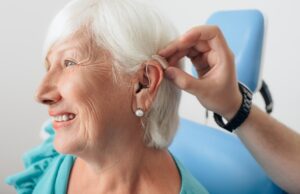
Research suggests that diabetes may be closely related to hearing loss, but there is yet to be a definitive explanation.
The American Diabetes Association estimates that about 37 million people have diabetes, and 34.5 of them also have hearing loss.
A new study suggests that some form of hearing loss happens at about double the rate in people with diabetes compared to those who don’t have the metabolic condition, often caused by years of unmanaged blood sugar levels.
The work also found that people with prediabetes – those with high blood sugar levels but not yet at the height to be classified as diabetic – experience hearing loss at a 30% higher rate than folks with normal blood sugar.
There are two forms of diabetes. Type-1, also called early-onset diabetes, is a genetic condition that happens very early in life. High blood sugar levels are treated with insulin.
Type-2 diabetes is not a genetic condition. It is a health condition caused by eating a high-sugar diet, which, over time, can weaken the body’s natural ability to produce insulin and store glucose in lean tissue. Blood sugar is elevated and, if left untreated, can lead to the body shutting down.
Blood sugar can be managed naturally, before things get out of control, through lifestyle measures like diet and exercise.
It’s possible that the effect of diabetes on hearing may be similar to its effect on vision and kidney health. High blood sugar damages small blood vessels, impairing organs’ normal function. Damaging such blood vessels in the auditory system may account for the increased risk of hearing trouble.
The signs of hearing loss typically include frequently asking others to repeat themselves, having trouble following conversations featuring more than two people, and having difficulty hearing or understanding people. Turning up the sound on the television or stereo, to the point where it disturbs others, can also indicate hearing impairment.
If you believe you have trouble hearing, contact your primary care doctor to discuss options.